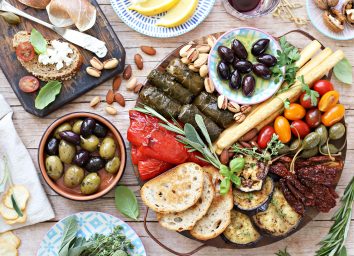8 Best Eating Habits If You Have Colon Cancer, Say Dietitians
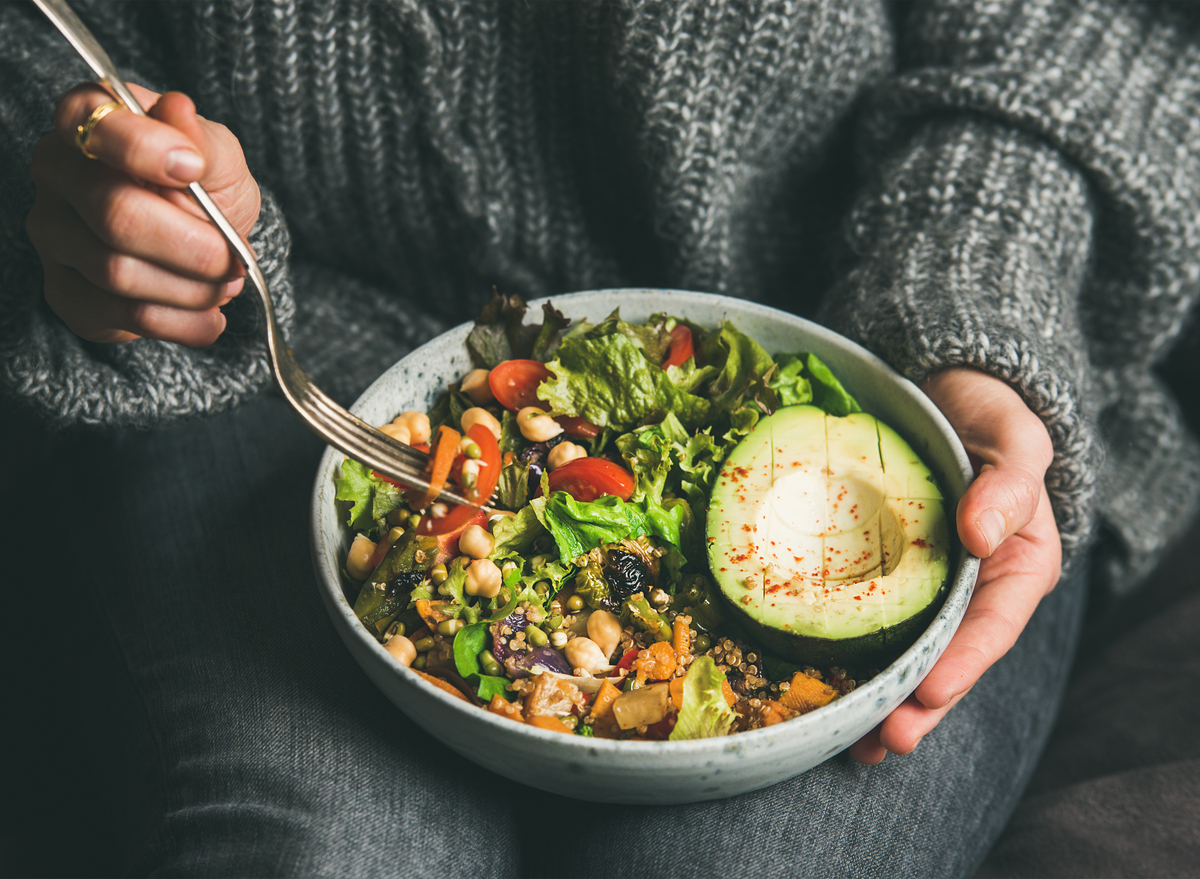
Living with colon cancer can cause anyone to take a step back and rethink their diet. According to Cancer Treatment Centers of America, those who receive active treatment for the disease have to eat based on the side effects of chemotherapy, which include nausea, diarrhea, or loss of appetite. Many patients have to particularly work hard in order to stay hydrated, well-fed, and fully nourished.
Colon cancer proves particularly difficult due to the fact that the intestine absorbs fluids and electrolytes. If the organ needs to be partially surgically removed, the individual may have a much harder time absorbing the proper nutrition.
Luckily, experts have worked with patients over the years to develop the best eating plans that provide the right kinds of nutrients needed for those living with this kind of cancer. We consulted a variety of registered dietitians in order to discover what eating habits anyone who lives with colon cancer should follow to stay as healthy as possible.
Eat more berries.
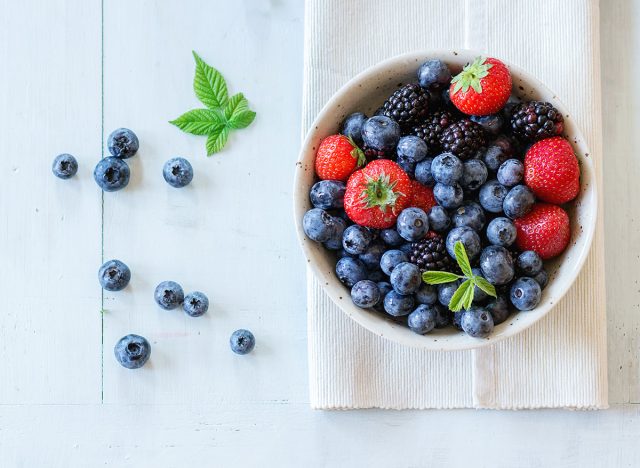
In order to glean as much nutrition out of one's diet as possible, those who live with colon cancer should make sure to load up on berries.
"Some of the best foods for cancer are richly colored berries," says Morgyn Clair, MS, RDN at Fit Healthy Momma. "This is due to their high antioxidant content which can help combat free radicals. Free radicals are the compounds that attack healthy cells, allowing cancerous tumors to grow."
Include more protein in your diet.
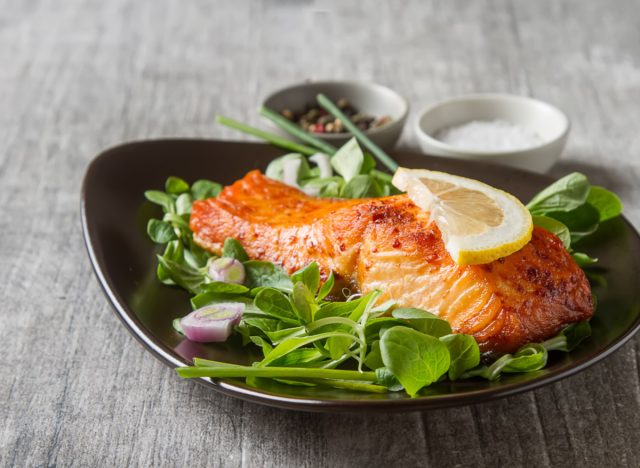
Anyone undergoing chemotherapy for colon cancer should try to eat more protein on a regular basis.
"Protein-rich foods are also essential when going through treatment," Clair continues. "Protein is important for helping repair and build new tissue. It is also vital for a healthy immune system. Lean proteins are best such as eggs, fish, nuts, and poultry."
The idea of eating more of anything might prove particularly tough to stomach when you don't have an appetite, but the right portions can make all the difference.
Eat small meals regularly.

"Smaller, more frequent meals can help provide the body with adequate nutrition throughout the day," says Amy Goodson, MS, RD, CSSD, LD, author of The Sports Nutrition Playbook, and a member of our medical expert board. "For those people that might experience nausea or might have some GI discomfort, smaller meals may be easier to digest with less GI discomfort."
Eating smaller meals has a ton of benefits, and if you need a strategy in order to make this eating style work, check out 18 Easy Ways to Control Your Portion Sizes.
Grab a smoothie.
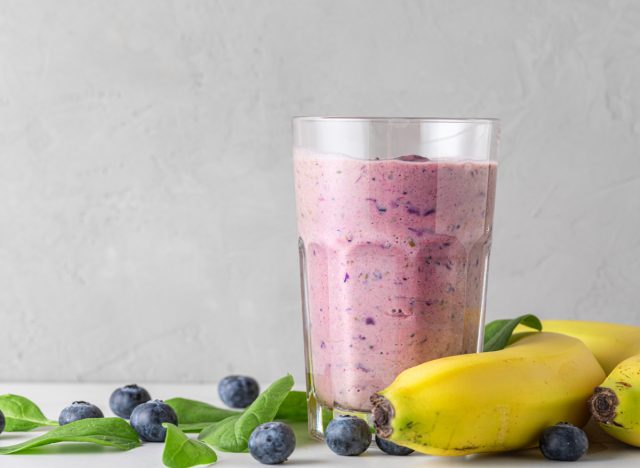
Even when food sounds less than desirable, you can still guarantee you receive the right amount of nutrients thanks to one particular drink.
"If you have a decreased appetite, fueling your body with nutrient-rich smoothies may be a great option," Goodson continues. "Consider blending fruit, spinach, milk, Greek yogurt, and even nut butter to help provide the body with quality nutrition when you don't feel hungry."
Reach for extra nutrients.
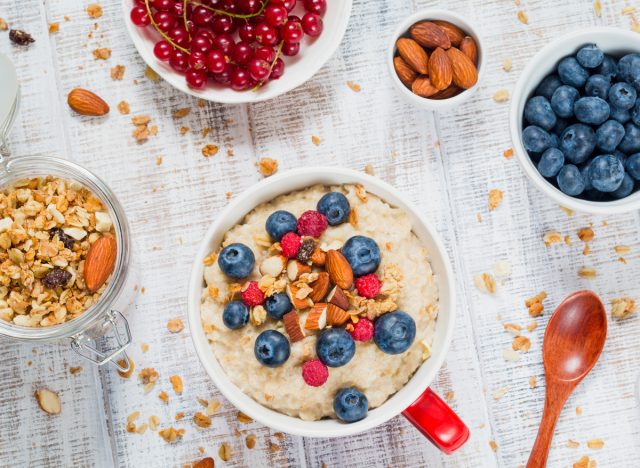
Specifically seeking out more nutrients than normal can also do wonders for those living with colon cancer.
"Nutrient-rich foods like fruits, veggies, 100% whole grains, healthy fats, and high-quality proteins provide the body with the vitamins, minerals, antioxidants, and plant compounds it needs to help keep the immune system strong and fight off illness," says Goodson.
Eat more produce.
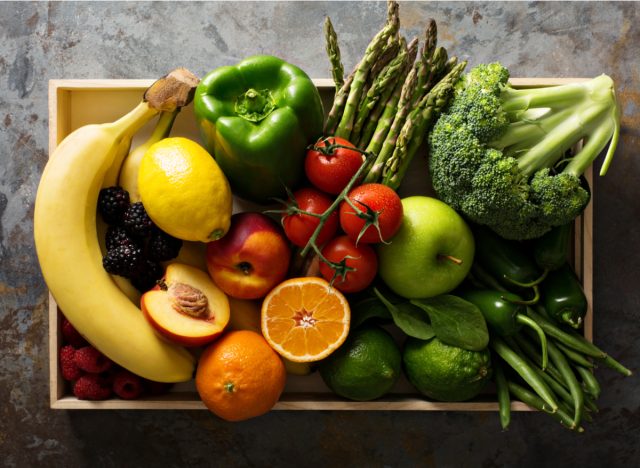
Eating vegetables always comes as a good decision and those living with colon cancer should particularly seek out more produce.
"The American Institute for Cancer Research states the best way to prevent cancer through dietary means is by eating cancer-protective nutrients like fiber, vitamins, minerals, and phytonutrients," says Trista Best, RD at Balance One Supplements. "These nutrients are found in vegetables, fruit, beans, grains, nuts, and seeds. A plant-based diet increases all of these food sources in a significant way while also reducing foods that can increase cancer risks. This doesn't necessarily mean cutting out all animal foods and becoming a strict vegan, but making plants more of a staple in your diet."
Eat more colors.
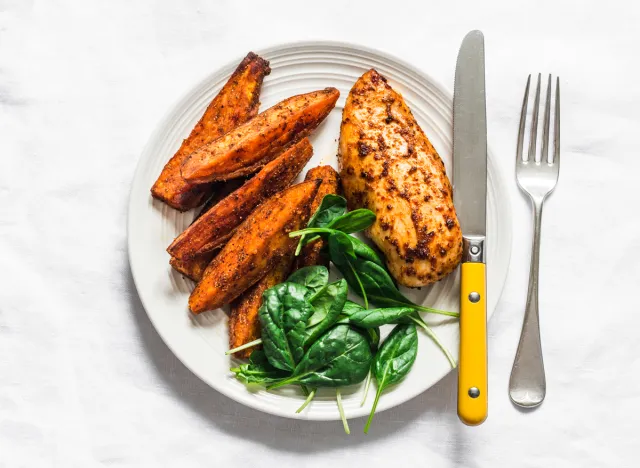
"Make half your plate colorful fruits and vegetables," says medical board expert Dr. Lisa Young, PhD, RDN, author of Finally Full, Finally Slim. "While there is no one magical winner, the key is to vary your colors. Each color family of produce contains different nutrients that support immune health. Orange produce like carrots, sweet potato, and cantaloupe are rich in the antioxidant beta carotene."
Include more natural dairy in your diet.

Eating the right kinds of dairy can also ensure those with colon cancer receive the proper amount of nutrition in their daily diet.
"Include minimally processed dairy foods rich in calcium and vitamin D," Dr. Young continues. "Plain Greek yogurt is excellent as it also is a probiotic which supports immune health."
Colon cancer particularly throws a wrench in anyone's typical diet, but with a bit of planning, those who live with the disease can gain the right amount of nutrients that they need in order to thrive.

